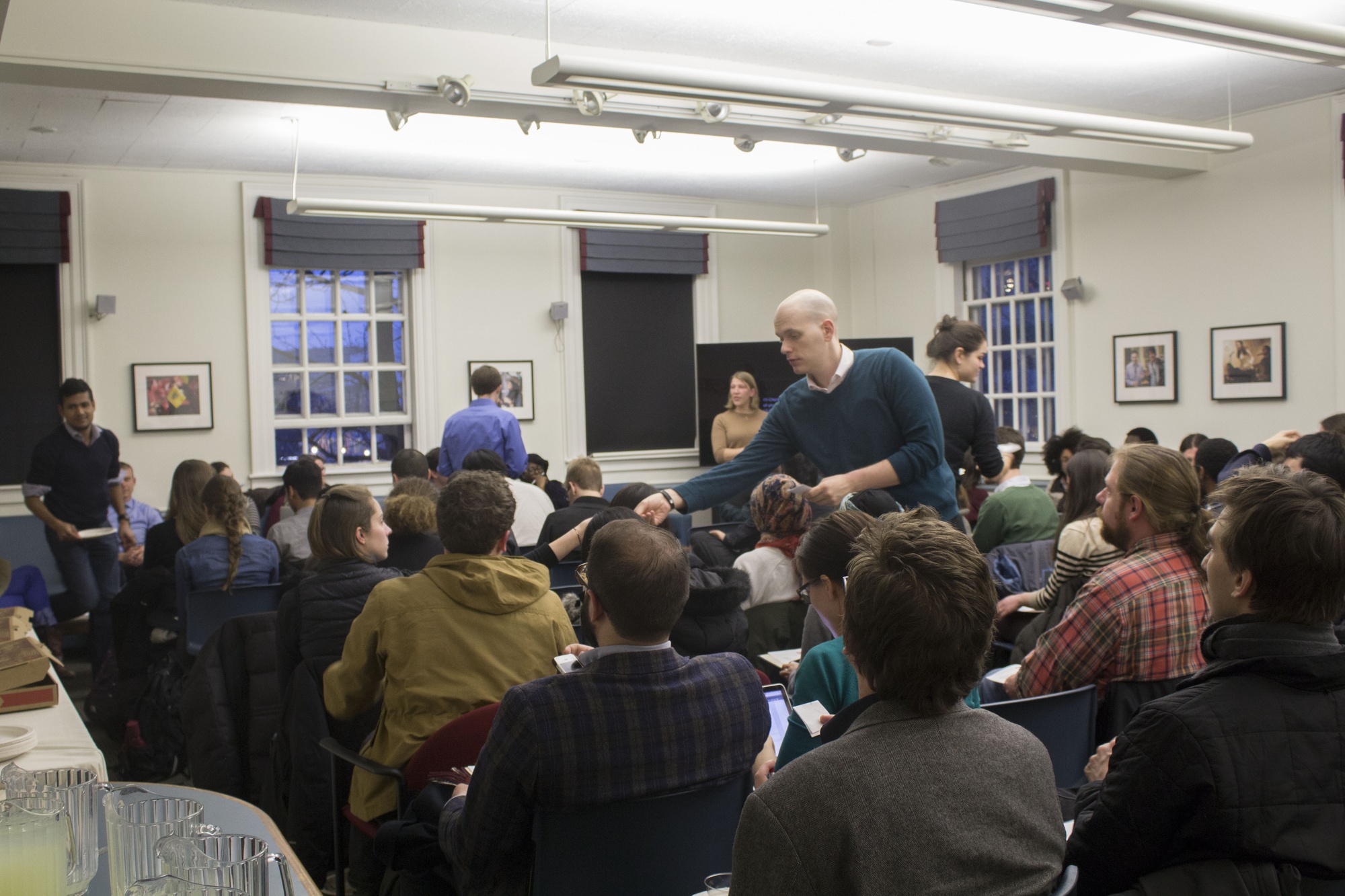
News
Summers Will Not Finish Semester of Teaching as Harvard Investigates Epstein Ties

News
Harvard College Students Report Favoring Divestment from Israel in HUA Survey

News
‘He Should Resign’: Harvard Undergrads Take Hard Line Against Summers Over Epstein Scandal

News
Harvard To Launch New Investigation Into Epstein’s Ties to Summers, Other University Affiliates

News
Harvard Students To Vote on Divestment From Israel in Inaugural HUA Election Survey
Grad Student Council Condemns Amicus Brief Against Unionization

Clashing over issues ranging from the meaning of true democracy to the role of the Graduate Student Council, graduate students voted to pass a hotly contested resolution to condemn Harvard’s filing of a joint amicus brief against graduate student unionization at this month’s GSC meeting.

The resolution, which passed 34 to 6, states that Harvard's filing of the brief “interferes with the democratic rights of graduate student workers.” At a meeting in November, the Graduate Student Council passed a resolution to support graduate student workers and union organizers, but not to support the movement itself.
GSC Vice President John Gee, a supporter of the unionization effort, proposed the resolution debated at this month’s meeting.
“This is just us telling Harvard that we meant what we said in the fall,” Gee said.
In the lengthy debate before the vote, a few students discussed why they opposed the resolution. Jae Hyeon Lee, a graduate student who opposes the unionization effort, said the resolution is “inconsistent with the requirements of democracy.”
“Filing the brief is one way that University leaders have chosen to engage in the conversation, and to condemn it is to suppress the University’s voice,” Lee said.
Graduate student William Baldwin countered that Harvard's actions were undemocratic.
“It’s not democratic when someone says, ‘don’t worry, we’ve got this. We know what’s best for you.’ That’s what your dad says,” Baldwin said. “In a democracy, we trust people to make decisions that are right for themselves.”
Students at the meeting also voted for a new executive board. Answering a question posed to candidates for the vice president position, graduate student Peter J. Dyrud said he felt the GSC and the union effort should be independent of each other.
“I really believe that, especially for people in positions of authority on the GSC, our job is to remain overall independent of the union movement and other student initiatives because it’s really important to represent students on both sides,” Dyrud said.
Gee said the resolution would not merge the council and the union effort. Instead, he argued, it would only serve to “signal” to the administration that its actions were unacceptable.
“This doesn’t commit us to going out and signing students up for the union. It doesn’t commit us to going out and staging a sit-in at Mass. Hall or anything,” Gee said.
Two students raised concerns over whether it is appropriate for the GSC to take what they considered a “political” stance.
“We are here to support students. We are not here to be activists,” graduate student Kevin Tian said. “It is a very careful line to tread, and once we cross it, it will set a precedent that will carry on, that I do not think the full consequences are quite fully understood.”
When graduate student Jack M. Nicoludis, a spokesperson for the unionization effort, answered questions as a candidate for a GSC representative position, he was asked whether his membership in both organizations would be a “conflict of interest.” Nicoludis assured the questioner that he could personally support the union effort and keep that separate from his role as a representative.
Union supporters, on the other hand, said that as a representative body, the GSC should fight for the rights of students to decide whether or not they want a union.
“It’s not a partisan issue; it’s an advocacy issue,” unionization supporter Abigail Weil said. But she added, “I don’t see anything wrong with the GSC taking a more active role and being political.”
At a time when a majority of graduate students employed by Harvard support unionization, graduate student opposition to the union has not been widely expressed. But Lee, who penned an editorial in The Crimson urging students to vote against the resolution, said that several students came up to him after the meeting and thanked him for expressing his opinion.
—Staff writer Leah S. Yared can be reached at leah.yared@thecrimson.com. Follow her on Twitter @Leah_Yared.
Want to keep up with breaking news? Subscribe to our email newsletter.
